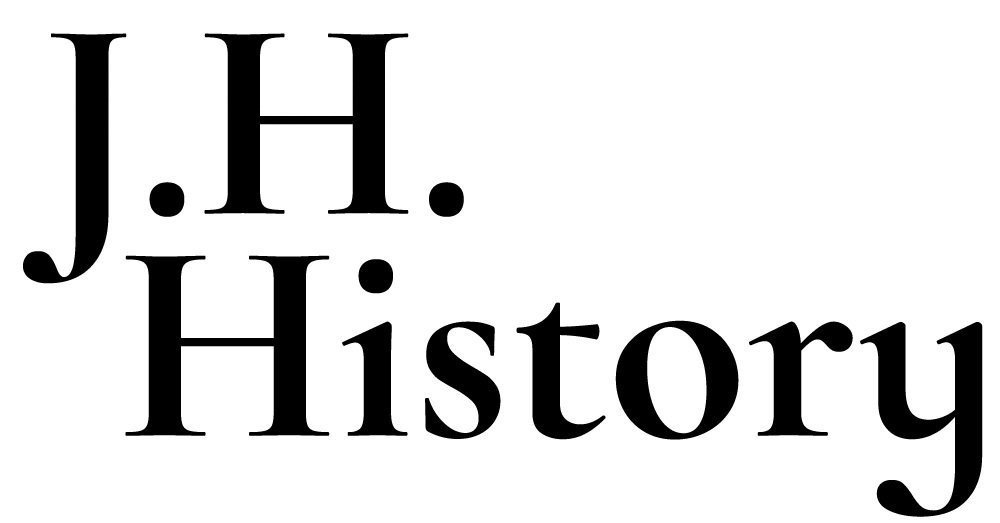Francis Scott Key writes The Star-Spangled Banner
This little-known incident led to a chain of events that put Francis Scott Key among the British ships bombarding Fort McHenry.
It all began with an arrest of sixty-five-year-old Dr. William Beanes of Upper Marlboro. He was a respected physician and Revolutionary War veteran and well known in Washington. As the British returned to their ships, they spotted enemy stragglers and at least one deserter looting. Dr. Beanes helped local citizens arrest the troublemakers. The Royal British Naval officers were not amused by what they considered a betrayal of Dr. Beanes. They issued an arrest warrant for the Doctor, who was roused from his bed and, with two companions, were taken aboard a Royal Navy ship in chains. Their next stop might be Halifax, Nova Scotia, or, even worse, Dartmoor Prison, England.
After West met with Key, Key met with President Madison. Together they met with Brigadier General John Mason, the commissary general of prisoners. Key was permitted to seek the release of Beanes and requested that American Prisoner Exchange Agent Colonel John Stuart Skinner accompany him. Skinner had conducted many dealings with the British and was familiar with the commanding officers.
Francis and Skinner rowed from the anchored sloop to the HMS Tonnant to discuss the exchange of prisoners. Vice-Admiral Alexander Cochrane invited them to stay for dinner as guests. Having visited so long, the Vice-Admiral refused to allow them to leave. He, rightfully so, expected that they had observed too much during their stay and might have anticipated the pending British attack on Baltimore.
Key spent the night as an observer of the bombardment of the Fort McHenry on the night of September 13–14, 1814. Though they intended to row back to their sloop, they protested but were forced to stay aboard.
As the sun appeared over the eastern horizon, Key, who had been standing on the deck most of the night, was able to see an American flag still waving. After being released, he returned home and wrote a poem about what he observed and felt that night entitled "Defense of Fort M'Henry," published in the American and Commercial Daily Advertiser. With encouragement from friends, Key took his poetry to music publisher Thomas Carr. Carr adapted it to "To Anacreon in Heaven a popular rhyme that Key had used before of his 1805 song "When the Warrior Returns."[i]
[i] Clague, Mark (June 5, 2014). "Star-Spangled Mythbusting". Chorus America. Retrieved September 13, 2021.
O say, can you see, by the dawn's early light,
What so proudly we hailed at the twilight's last gleaming?
Whose broad stripes and bright stars, through the perilous fight,
O'er the ramparts we watched, were so gallantly streaming!
And the rockets's red glare, the bombs bursting in air,
Gave proof through the night that our flag was still there:
O say, does that star-spangled banner yet wave
O'er the land of the free and the home of the brave?
On the shore, dimly seen through the mists of the deep,
Where the foe's haughty host in dread silence reposes,
What is that which the breeze, o'er the towering steep,
As it fitfully blows, now conceals, now discloses?
Now it catches the gleam of the mornings' first beam,
In full glory reflected now shines on the stream:
'Tis the star-spangled banner! O long may it wave
O'er the land of the free and the home of the brave!
And where is that band who so vauntingly swore
That the havoc of war and the battle's confusion
A home and a country should leave us no more?
Their blood has washed out their foul footsteps pollution.
No refuge could save the hireling and slave
From the terror of flight, or the gloom of the grave:
And the star-spangled banner in triumph doth wave
O'er the land of the free and the home of the brave!
O thus be it ever, when freemen shall stand
Between their loved homes and the war's desolation!
Blest with victory and peace, may the heaven-rescued land
Praise the Power that hath made and preserved us a nation
Then conquer we must when our cause it is just
And this be our motto: "In God is our trust."
And the star-spangled banner in triumph shall wave
O'er the land of the free and the home of the brave!
